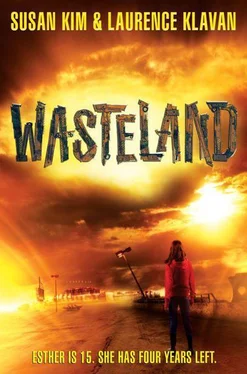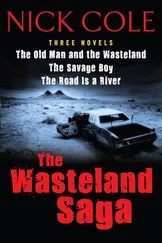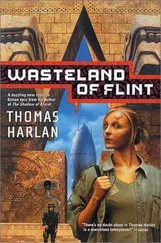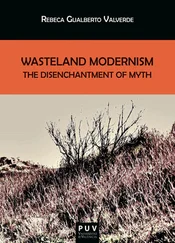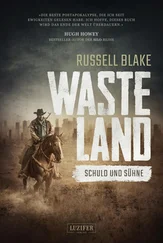The big mutant said something, a few words the boy couldn’t hear on account of the noise; but whatever it was, everyone stopped what he was doing and backed away from the car. In the silence, Eli could hear their bare feet crunching on the pebbled green glass sprayed across the shoulder and road. Once everyone had cleared, the mutant took the bottle and started splashing its contents over the remains of the mutilated Volvo.
Eli realized what the big mutant had pulled from his shoulder pouch, what he now held aloft in one hand and was tossing in the air like a toy.
It was a small plastic object, bright pink, the size of a thumb. A firestarter.
“Oh no,” said Till next to him, involuntarily. “Please… don’t!”
As if he had heard, the mutant gave a faint smile. He pressed a button on the side of the object once, twice; on the third time, and with a distinct click , a small orange flame blossomed out of the top. Then he bent down and touched the flame to the wet, glistening asphalt.
The mutants scattered as fire licked and spread across the pavement and trampled grass, racing with unbelievable speed in rippling blue and yellow waves toward the car, the car that still had gas in it, at least half a tank of the precious stuff, maybe closer to a full tank. Leaping onto their bikes, the mutants took off and within seconds, they disappeared.
From their hiding place, Eli covered his head with one arm, the other around the unconscious Bekkah, his face pressed hard into the dusty ground. He braced himself and prayed that Till, next to him, would do the same.
Then the car exploded.
By the old railroad tracks, rusty and nearly obscured by weeds and trash, Esther heard the faraway blast. She froze; then she pulled Skar down so they were nearly hidden by the tall grass.
“What’s going on?” Skar asked, although she already knew.
“Nothing,” Esther lied.
Whooping and shrieking, the variants rode single file into town, rattling the broken, faded WELCOME TO PRIN sign as they thundered past. They spread into a V formation as they headed down the central street, flanked on both sides by sidewalks and two- and three-story buildings, with empty storefronts on the ground floors. While a few structures showed the effects of earlier recent attacks, most were unscathed.
The variants did not spare the first buildings they encountered. One stood on the foot pegs of a bicycle and whirled a sling around his head. He let fly with deadly accuracy, and the window of what had once been a clothing store shattered, collapsing in an explosion of broken glass.
Most of the variants rode ahead, while several dismounted, wielding chains and clubs. Using a broken windowsill as a foothold, one reached for the neon sign above the remains of a pharmacy; with one blow of her cudgel, she smashed it partway off the building, so it dangled at a crazy angle. She swung at it again, this time bringing it crashing down in pieces; then she proceeded to beat it into fragments on the street. Another whirled his sling above his head, launching rocks to smash one window after another.
Residents scattered for cover, taking refuge wherever they could find it. They had no time to consider the senselessness of the event; they had witnessed it in the weeks before, but this ambush was far worse, more savage and out of control.
A girl, age eleven or twelve, ran to a rusted car in the street and managed to roll underneath before being seen. As she lay there, she saw bare feet stop in front of her. Holding her breath, she watched as the feet paced back and forth. After what seemed an eternity, they walked away and she heard a bike take off.
Elsewhere, faces appeared in second-floor windows, looking at the mayhem.
One boy, Jonah, decided he would try to save the town single-handedly.
When the variants blasted down the main street, the ten-year-old had managed to scale the fire escape of a battered building without drawing attention. He had made his way to the roof, and now, lying on his belly on the hot tar, he gazed down at the destruction. In one hand, he gripped a lead pipe, which he had kept in his back pocket for weeks for exactly a moment such as this.
He watched as variants kicked in the front door of what had once been a bar. He watched as they caught a boy trying to escape, ripped his headdress off him, set it on fire, then tossed it through the broken door of an old hair salon. He watched until they seemed to tire of causing chaos, until they were ready to move on, and gathered to huddle their bikes to make a plan, waiting for someone to tell them what to do.
They waited for the one they called Slayd.
The variant leader approached, skidding his bike to a halt. Leaning over the handlebars, he addressed the others with emphatic gestures. His back turned to the stores, Slayd didn’t see the iron pipe, flung like a boomerang, winging toward his head.
Another variant saw it. He leaped forward, pushing Slayd out of the way and Slayd’s protector was clipped on the side of the head by the pipe and was knocked cold, feet jerking up and down on the pavement.
The boy on the roof became an easy target. As Slayd got to his feet, the others let loose a volley of rocks toward the boy, who was scrambling down the fire escape. They nailed him at once—on the back, the legs, the head. He rolled down the final steps and dropped to the pavement with a sickening thud.
In the silence that followed, Slayd brushed off his tunic, dignity intact. He didn’t acknowledge the protector any more than the assailant; both still lay, unconscious, on the ground. Instead, Slayd got back on his bike and led the rest of his band away, with a final, piercing shout. The last to leave grabbed the fallen variant and slung him over his shoulder. Then he too remounted his bicycle and was gone.
One by one, the townspeople straggled out of their hiding places. They stood in a state of shock on the street, breathing in the dust stirred up by the variants that still hung in the air.
There had been little left of their town in the first place. Now, there was even less.
HOURS LATER, THE STREET WAS STILL EMPTY AND SILENT, LITTERED WITH shards of broken glass, rocks, and splintered wood. The dusty asphalt showed the scuffed marks of bike treads and bare footprints that the wind would soon erase. On the ground beneath the fire escape, a few red splatters had dried and were blackening in the afternoon heat.
Far in the distance, a thin plume of gray smoke spiraled upward before disappearing in the darkening sky.
At the edge of the main street stood a one-story brick building surrounded by a cement field marked with fading white lines. Two battered yellow arches loomed overhead atop a high metal pole. By some miracle, the large windows that dominated three of the walls had been spared in the recent attack.
Now a small, anxious face peered out from a clear spot rubbed on the grimy glass.
It belonged to a sentry, a dark-eyed boy perched on a molded table attached to the floor and focused on the empty street, keeping watch in case of another attack. He was perhaps six or seven years old and he fought to stay awake. Behind him, the crowded room was restless and noisy, with a shrill clamor of voices raised in anger, fear, and confusion.
Everyone from town, more or less, was present; and it seemed everyone had something to say. More than a hundred children and teens huddled on top of tables and chairs, along the grimy tile floor and the stainless-steel counter. A lone child sat in the corner, soothing a younger girl who lay cradled in her lap, sucking from a dirty soda bottle. A few others retreated deep into their thoughts, staring upward at the ceiling.
One boy banged his fist on the metal counter until the others stopped talking.
Читать дальше
